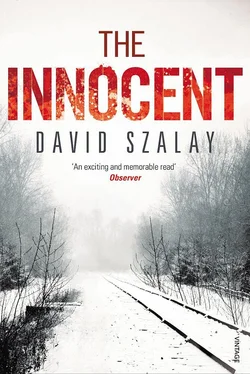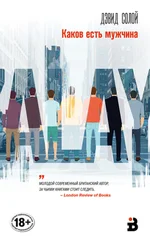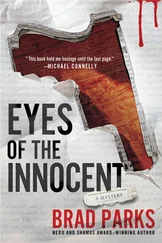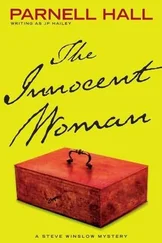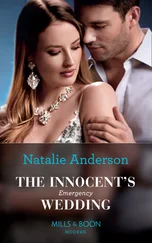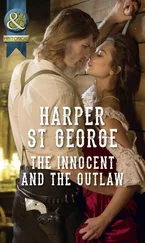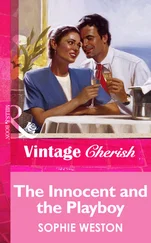Sometimes it seems like my head is enormous. That it’s as big as a table … Sometimes it seems like my head is very small like a coin. Sometimes I think my leg is near my shoulder. Above my head even. I know this can’t be true but I still think that.
For some reason I can’t remember anything. My head is completely empty and flat. No thoughts no memories …
When a doctor asks me to show him where my nose is I can’t do it. It’s strange but I can’t do it. I know the word nose is part of my body but I can’t remember which part … Because of my injury I can’t remember which part it is. I’ve also forgotten the words for the parts of my body …
I see images of my childhood. The shore of the Iset where we used to swim … The buildings where I went to kindergarten and primary school … The faces of children and teachers I once knew. The strange thing is my mem ories are mostly from my childhood and primary school years. Those are the memories I live with now …
I’ve seen dogs. I know what they look like but since my injury I haven’t been able to imagine one. I can’t imagine or draw a fly or a cat. I just can’t imagine what they look like … What I see are some specks or tiny bodies. I can’t understand how wood is manufactured. What it’s made of …
I want to write about my life. What my life is like … When I start I realise it’s impossible because I can’t remember the words I need. I spend so much time trying to remember the words I need … In the end I stop trying because it hurts my head and makes me angry and upset …
I’ve started to rewrite the whole thing but my mind seems to work more slowly. I don’t seem to have the strength or memory. I have no thoughts or memories … Most of the time I’m in a fog like a heavy half-sleep.
A beautiful view everywhere. On one side a lake surrounded by pine trees. Wherever I look there are huge trees and the sky seems bluer even though the sun is shining just shining with light everywhere …
I wanted so much to write about my life and I worked so hard at it I finally felt sick. But this writing is my only way of thinking … If I stop I’ll be back in that know-nothing world of emptiness and amnesia …
Is an elephant bigger than a fly? When I try to think about that I don’t understand. I imagine an enormous fly. I don’t understand what the question means. I know that sounds strange … What does bigger refer to? It can’t be the fly. I understand that an elephant is big and a fly is small … I can’t understand the question.
Memories suddenly appear. I see things like the river where we used to go swimming. The house where we lived. If I try to imagine these things at other times I can’t do it. I can’t picture them … Sometimes I also remember people. Usually I can’t remember them. Children and teachers I used to know … Sanka Mironov and Volodka Salomatin and Adya Protopopova and … There was a teacher … We lived near a park where it was always very quiet …
SUNDAY. STILL NO end to the heatwave. He has opened the windows, and the thin brown curtains, half-drawn to hold out the white intensity of the sun, move and swish in the warm draught. The sun sparkles through their loose mesh. It is late afternoon. Somewhere children are shouting, and the radio is on in Mrs Chakovsky’s flat. There is, though, an atmosphere of stillness. The heat holds everything still. Sitting on the sofa he is reading the newspaper, though he knows it will just upset him – in Chile, Allende has formed a new government, and yet there is not a word about the way in which Nixon and Kissinger are doing everything in their power to stymie his struggle for a socialist society there. Not a single word!
From the street, he hears the unfamiliar sound of a vehicle engine. With a short mechanical sigh – perhaps a well-timed stall – it stops. Holding open the curtain he sees Ivan emerging from his Lada. He seems to spot something, some imperfection, on its paintwork and scrubs it intently with the brown sleeve of his suit jacket. Then he makes a minute adjustment to the wing mirror. Then, looking up and down the quiet suburban street, he locks the Lada, smoothes his moustache, and walks up the short concrete path under the cherry tree.
‘You’re late,’ Aleksandr says, leading him up the stairs.
‘There was a problem at work.’
‘What problem?’
‘Just … They want us to rewrite an article that was supposed to go to press today,’ Ivan says. He is deputy editor of the main oblast newspaper, the Urals Worker .
Sitting on Aleksandr’s mustard sofa – spartan in its square angles and lack of padding – he enthuses about his holiday in Yugoslavia. Not too much though. He knows Aleksandr’s views on these things – on foreign travel, to Titoist Yugoslavia in particular – and does not want to upset him. Aleksandr has never left the Soviet Union, and says he never wants to. ‘Why would I?’ he says. Ivan does not know whether or not this is sincere. If it is, he does not understand it. He himself has travelled widely – to several of the fraternal nations of Eastern Europe. Even – one of the highlights of his entire life – to Tokyo, as a sports journalist for the 1964 Olympics.
Waiting for Aleksandr to dress, his eyes move impassively from the spines of the books – so many books! – to the small postcard portrait of Stalin, smiling warmly in his white generalissimo’s uniform. Involuntarily, Ivan wrinkles his nose and looks elsewhere. There are no images of the present leadership in the flat, of course. Nor even of Lenin. (In his office, Ivan has a modest alabaster head of Lenin, and there is an official photographic portrait of Brezhnev on the wall. These are not his own, though. They are part of the office furniture. In his flat there is a painting of Lenin in the hall, but that too is only for show.) Without thinking, he takes the pack of Golden Fleece from his pocket and lights one. There is, he notices, paper in the typewriter on Aleksandr’s desk. He has been writing something. And next to the door a small square of whiter wall, where something used to hang. What used to hang there ? he wonders. He should have an image of it in his mind. He is perspiring and wipes his face with a folded handkerchief.
The interior of the Lada is spotless, and the engine starts second time. However, it stalls as it moves out into the road, and Ivan has to restart it, which irritates him. He swears quietly, and sitting in the passenger seat, Aleksandr smiles to himself. ‘How’re the children?’ he says, as they trundle slowly over the un-tarmacked surface of the street. Ivan looks worried about his suspension. ‘Um, I spoke to Shurik yesterday,’ he says eventually. ‘On the phone. He’s got a German girlfriend.’ Shurik, his younger son, is doing a postgraduate degree in Leipzig.
Scudding down Komsomol Street, with soot-black exhaust fumes in their wake, they overtake slow trams. The sun flares on the polished bonnet, and Ivan leans forward, squinting. They travel in tense silence – kick-off is in less than an hour now. It is only two weeks since the USSR finally and formally acknowledged the existence of West Germany as a state, with a seat at the United Nations, and West Berlin as part of it – and now they meet in the final of the European Championship. There seems to be something more than sport at stake. Aleksandr stares out the window. Trams and dusty trees. The long brown façade of the Urals State Technical University.
Ivan lives in a flat not far from 1905 Square. Looking at him in the slow lift – he himself is staring impassively into one of its polished walnut panels – Aleksandr says, ‘Do you dye your hair, Vanya?’
Ivan looks up and smiles – a worried, self-effacing smile which makes Aleksandr think of the twelve-year-old who left their village and joined him in Sverdlovsk in 1929. Now his handsome teeth are nicotine-stained, and he is a man in his fifties, something which Aleksandr often forgets. There is a weariness, a sadness in the smile that was not there in 1929. ‘Is it that obvious?’ he says.
Читать дальше
